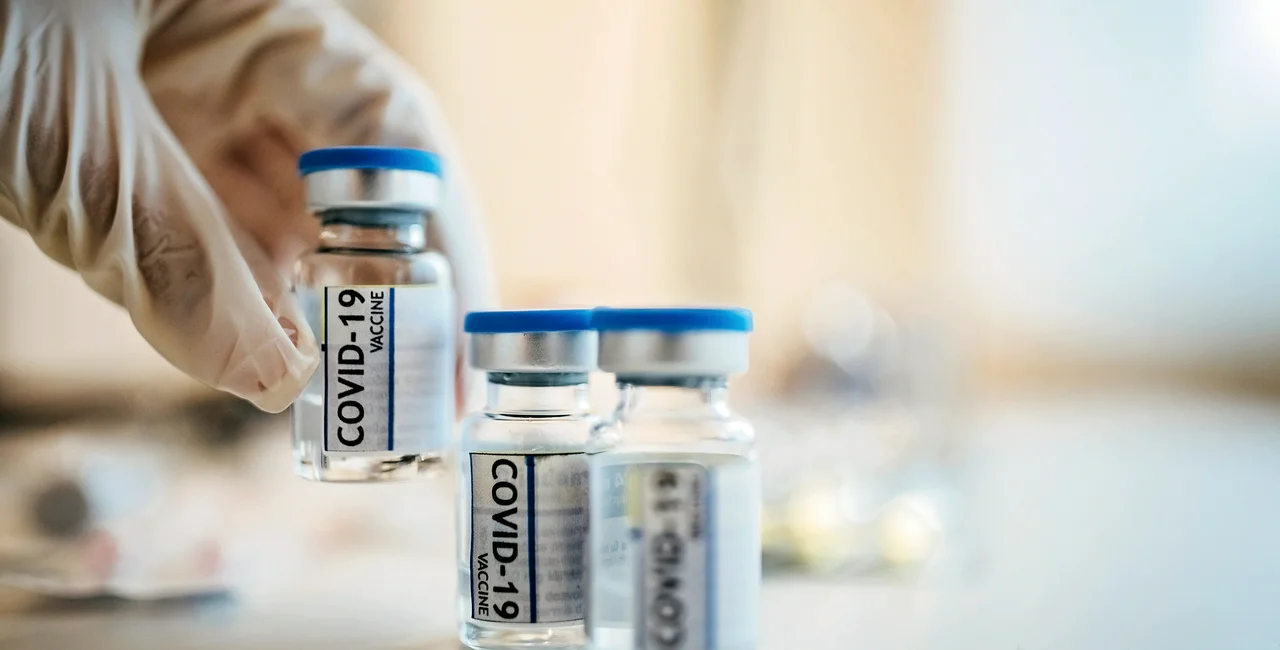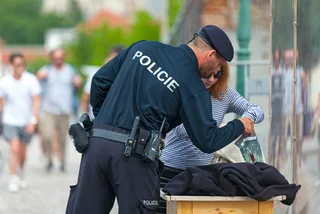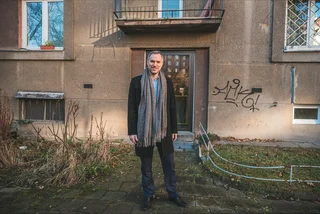This is a weekly overview of the latest coronavirus news for Prague and the Czech Republic. Here you'll find important developments, organized by date, and updated daily by Expats.cz as well as a live data stream taken from the Ministry of Health. A regularly updated list of restrictions can be found here.
For a more detailed breakdown of Covid hospitalization, vaccination, and mortality data for the Czech Republic, see CovData.cz.
Latest COVID Statistics
Confirmed cases on 09.02.2026: +172
Active cases: 710
Currently hospitalized: 12
Tests yesterday: 384
Vaccinations yesterday: 16
Confirmed cases total: 4 885 389
Recovered total: 4 840 650
Vaccinated total: 6 978 518
Tests total: 22 834 749
Deaths total: 44 029
Source: https://onemocneni-aktualne.mzcr.cz
January 16, 2022
Overview Czech Republic sees highest weekend rise in Covid cases since December 4
The Czech Republic reported 9,210 new Covid-19 cases on Saturday, the highest weekend tally since December 4 and a week-on-week increase of 133 percent, according to the latest data published by the Health Ministry today. Conversely, the number of Covid patients in Czech hospitals continues to fall, and today's total of 1,599 is the fewest since October 30.
In the first week of December, there were 7,000 Covid patients in Czech hospitals, including more than 1,000 in serious condition. At present, the number of hospitalizations is four times lower, and about a third less than last weekend. Similarly, the number of patients in serious condition dropped from 452 to 312 week-on-week.
The data on new infections does not include reinfections, or cases of repeated infection in those who had previously been infected with Covid-19. On Saturday, there were 1,206 reinfections, almost four times more than a week ago, according to information provided by the Health Ministry.
January 15, 2022
Overview New Covid cases hit one-month high, but hospitalizations continue to fall
The Czech Republic reported 13,151 new Covid-19 cases on Friday, twice as many as the previous Friday and highest number since mid-December, according to the latest data from the Czech Health Ministry. Hospitalizations, however, have continued to decline and fell to 1,802 yesterday, the fewest since the end of October.
The daily number of new Covid-19 infections has been steadily growing for the past two weeks after remaining under 10,000 in late December and early January. On the other hand, the number of Covid patients in hospitals has been steadily falling since early December, when it they numbered about 7,000.
The Covid incidence rate, or the number of new cases per 100,000 people over the past seven days, has risen to 586 today, up from 525 on Friday and the highest it has been since December 20.
One in ten Czechs over 80 remain unvaccinated
About 48,500 Czechs over the age of 80 have not been vaccinated against Covid-19, according to the vaccination data from January 13 shared by the Czech Statistical Office. Around ninety percent of Czechs over this age have received at least an initial vaccine dose, and nearly seventy percent have also received a booster dose.
General registration for Covid vaccination for seniors over the age of 80 opened exactly one year ago, on January 15, 2021. Before this date, vaccines were administered to seniors in hospitals and social care homes. A total of 91.9 percent of them, or about 411,000 people, have received at least one vaccine dose or have registered for vaccination. The booster dose, available to seniors over the age of 80 since September, has been given to about 309,500 of them, or 69.2 percent.
January 14, 2022
OVERVIEW New cases up by three-quarters week on week
Tests on Thursday revealed 11,675 cases of coronavirus, up from 6,636. The number of new cases does not include reinfections, which have been increasing in recent days, probably due to the coronavirus variant of Omicron.
The number of people hospitalized with Covid has fallen to 1912, below 2000 for the first time since the end of last Nov. 1. There are currently 356 serious cases. A week ago, 2,724 here hospitalized with 503 serious cases. A preliminary 13 deaths were reported. The seven-day toll is 236 and the toll for January is 545. Some 80,759 vaccine doses were administered on Thursday, including 71,329 booster shots. Almost 6.73 million people have been vaccinated, and 3.1 million have received a booster dose.
The reproduction number R is at 1.22. The incidence number of new cases per 100,000 over seven days rose to 525, up from 478 a day earlier. It is now higher than just before Christmas. The incidence rate increased in all regions. In Prague, where the pandemic is worst, it rose to 1,035 from 937 a day earlier. The situation is best in the Vysočina region, at 309.
19:45 Válek: Work quarantine for health, social workers only
Covid work quarantine will only apply to healthcare professionals and social care workers, and their conditions will be specified by regional pubic health offices, Health Minister Vlastimil Válek told a press conference last night. Work quarantine is an emergency tool to secure treatment of patients, for instance, Válek stressed. People falling in the work quarantine group may continue going to their work despite having tested positive with an antigen test kit. If health officers allow somebody to go to work with a positive antigen test, there must be a zero risk of the person infecting somebody else. The person must not have Covid symptoms or other health troubles, Válek said. If an employee tests positive with a PCR test, mandatory isolation follows.
13:00 Companies to report positive antigen tests via the web
From Monday, companies will report employees’ positive Covid self-tests via the self-testing page on the website of the Institute of Health Information and Statistics (ÚZIS). Deputy Health Minister Josef Pavlovice said firms can immediately apply for compensation for the sick leave of the employee. Log-in details will be via the company data box. The ministry will publish detailed information as soon as it is finalized. Once the online forms are filled, all the relevant bodies are notified. The employer pays the first few days of sick leave, and can then apply for funds from Covid support programs. People who are not incapacitated can continue to work in quarantine from home.
Employers have two days to report the test positive results. Employees will receive an SMS message in case of the need for a five-day quarantine. After five days, if there are no symptoms the employee can return to work. If there are symptoms, the employee should see a doctor.
New govt. will finally discuss work quarantine, school testing
The list of professions that will be subject to work quarantine should be approved today by the new government of Petr Fiala (ODS). The cabinet will also discuss the form of testing in schools from next week. The cabinet was originally scheduled to decide on Wednesday, but that was postponed as the confidence vote took far longer than anticipated.
Work quarantine is intended to maintain the functioning of the state if the Omicron variant spreads widely among critical infrastructure employees. It could cover healthcare, transport, energy, water management, or funeral services. People from these professions who show a positive antigen test at work could continue to work in an isolated environment. If the infection was confirmed by a PCR test, they would stop working. Starting Jan.17, school testing should take place once a week with an antigen test. In case of a positive result, a PCR test will follow. So far, children have been tested in schools twice a week.
School Covid testing shows increasing trend
Covid testing at schools on Thursday, Jan. 6, had similar results to Monday, Jan. 3, with PCR tests confirming the infection in 1,187 students and 190 school employees on Thursday, while on Monday, it was found in 1,236 students and 177 employees, the Health Ministry said. The proportion of positive results confirmed by PCR tests increased from 0.1 percent to 0.3 percent of those tested. A detailed analysis has shown that there was an increased number of infected at secondary and vocational schools. Antigen testing this Monday suggested a rising trend in the pandemic. A total of 4,986 students and 499 teachers had positive antigen tests. The results of the verifying PCR tests are not ready.
Testing on Jan. 6 found 96.5 cases of infection per 100,000 people among students of secondary and vocational schools and 108.9 in the staff. On Jan. 3, there were 97.4 cases per 100,000 among students of secondary and vocational schools and 96.2 cases per 100,000 people among the staff. The tests detected most infections in Prague and the Central Bohemia Region, in which there is the highest share of the more contagious Omicron strand in the population.
Virologist: Everyone will get omicron, it may return in the fall
Nobody can avoid the Omicron variant and everyone will get it, Evžen Bouřa, a virologist from the Czech Academy of Sciences (AS ČR), told the Czech News Agency (ČTK). It is possible that Omicron will return in the fall because the immunity that people now gain will last less than a year, he said. Vaccination will remain the main weapon against Covid, and pharmaceutical companies are already developing a vaccine targeting Omicron, which should be more effective than today's vaccines, Bouřa added.
About 4 percent of children aged 5 to 11 vaccinated
About 4 percent of children between the ages of 5 and 11 have been vaccinated against Covid. A children’s version of the Pfizer / BioNTech vaccine arrived in the Czech Republic a month ago. Since then, medics have vaccinated about 33,500, with about a third in Prague. About 6,400 children already have a second dose. Experts point out that even for children, Covid may not always be a mild disease. Epidemiologist Roman Prymula said that more serious cases of the disease have recently appeared in children. Data shows that over 400,000 children under the age of 14 have become infected in the Czech Republic.
DATA ANALYST

Dušek: Cases rising in people aged 16 to 29
Health Information and Statistics Institute (ÚZIS) director Ladislav Dušek said he expects the infection numbers to further rise due to Omicron. "There is a very significant growth of the case load in the young population, something that every such epidemic wave starts," Dušek told Czech Radio, adding that the number of infections has recently been rising mainly among people between the ages of 16 and 29.
Olomouc scientist creates 3D models of Delta and Omicron variants
Scientist Karel Berka from the Faculty of Science at Palacký University in Olomouc created 3D models of proteins of the Delta and Omicron variants, the school stated in a press release. These will help scientists to better understand their different characteristics and behaviors. The differences in spike protein mutations can be observed in the models. The spikes play a key role in how the virus functions. The models are one of the results of the work of a group of Czech scientists who have been continuously sequencing individual variants of the SARS-CoV-2 virus in the Czech population since last spring, the university said.
Czech Republic sixth least affected in EU
The Czech Republic, with an incidence rate of 525 coronavirus cases per 100,000 people in seven days, remains the sixth least affected EU country, just like last week. The worst situation is in Ireland, where they have an incidence of 3,059. They were second a week ago at 2,814. France is now second with an incidence rate of 3,056. It was fifth a week ago at 2141. Cyprus is currently third, with a rate of 2,926. It was first a week ago at 3,390.
January 13, 2022
OVERVIEW Large week-on-week jump in new cases
There were 11,452 new Covid cases on Wednesday, up from 7,381 a week ago. The number of hospitalized continues to fall and is the lowest since late October. Currently, 2,046 are hospitalized with 378 in serious condition, down from 2,849 hospitalized and 505 serious cases a week ago. A preliminary 18 deaths were reported. The seven-day toll is 259 and the toll for January is 512.
On Wednesday, 82,917 people were vaccinated, including 72,257 booster doses. Some 6.72 million people have already received two doses or a single-dose vaccine, while almost 3.1 million have the booster jab.
The incidence number of new cases per 100,000 over the past seven days rose to 478 from 440 a week earlier. It increased in all 14 Czech regions except for Liberec. The worst situation is currently in Prague, at 937. The Vysočina Region is the least affected at 289.
18:45 New measures announced for trams and buses
As part of anti-Covid measures in Prague's public transport, passengers will not be able to enter buses and older model trams through the front door as of Jan. 17. It will also not be possible to sit in the first seats behind the driver. Doors will open automatically so people won’t have to push buttons. People can enter by all the doors only on the latest tram models, where the driver's cab is completely separate. On suburban bus routes, passengers will not be able to use the seats immediately around the driver. They are also urged to buy tickets with a cashless method such as the PID Lítačka app. The Prague Public Transit Company (DPP) adjusted the internal organization at dispatch centers and driver rotation points, and is ready to increase overtime or use contracted drivers.
Public transit lines prepare for cuts in service due to Omicron
ROPID, the regional organizer of public transit for Prague and part of Central Bohemia, is preparing for an increased loss of service due to the Omicron variant. From today, ROPID will start informing the public about “endangered” or less important lines that do not have to run during the pandemic. Information on public transport is published daily on the Prague Integrated Transit (PID) website and social networks as well as on the PID Lítačka application. PID has a priority of keeping school routes operating and maintaining connections at peak times.
Pupils will be tested for the second time a week
Pupils and school staff in primary and secondary schools will see another round of coronavirus testing today. It is the last round in the current regime that was set for the first two weeks of the new year. It called for testing twice a week From Jan. 17, testing will only take place once a week on Mondays. Currently, everyone is tested in schools, even if they have been vaccinated or have undergone Covid-19 in the last six months.
Slovakia tightens rules ahead of Omicron wave
Only two Covid-19 vaccine doses will no longer be enough for people to access some facilities and events in Slovakia, the Slovak government announced. New rules will take effect on Jan. 19. Entry will be allowed after the application of the booster dose or to the vaccinated without the third dose, but with a negative coronavirus test or recovery. Exemptions from restrictions after illness will be cut to 90 days. The tougher conditions of entry, which now cover the guests of accommodation facilities, will newly also cover the clients of wellness and fitness centers, water parks, discos, parties, balls, and celebrations. Slovakia will enforce them for four weeks after the Omicron wave starts to subside.
School wastewater monitoring could replace antigenic tests
Monitoring school wastewater for coronavirus could replace antigen testing for pupils when the epidemic subsides in the Czech Republic, according to the University of Chemistry and Technology, Prague (VŠCHT), the Prague 9 district, and sewerage company Pražské vodovody a kanalizace (PVK). Preliminary results of a pilot project showed the method was sufficient sensitivity. Since last September, sewage has been sampled from five primary schools in Prague 9 and one primary and one nursery school in Prague-Lysolajy. Experts tested the samples twice a week.
Waldorf School in Semily fined for violating the Covid regulations
The Waldorf primary and secondary school in Semily (Waldorfská základní a střední škola Semily) will pay a fine of CZK 100,000 for last year's violation of Covid regulations and another CZK 1,000 for costs of proceedings. The fine was assessed by the Regional Hygiene Station in Liberec. According to the municipal council's decision, the school will recover the money from dismissed school director Ivan Semecký, who last April violated government regulations by allowing untested children access to the school and not requiring the wearing of face coverings in the classrooms.
Constitutional Court rejects farmer’s complaint
The Constitutional Court rejected a constitutional complaint lodged by a private farmer from Southern Bohemia who complained about the government ban on movement between districts last March in order to prevent the spread of Covid. He had previously failed at the Municipal Court in Prague and then the Supreme Administrative Court. The Constitutional Court ruled in favor of the Supreme Administrative Court, which stated that the ban was not an interference with constitutional rights. The ban on movement between districts was valid from March 1 to 21.
January 12, 2022
Overview Most new Covid cases since mid-December
Tests on Tuesday confirmed 12,366 Covid cases, up from 10,167 a week earlier. This is the highest daily increase since Dec. 14. On Monday, the daily number of new cases dropped, after seven days of week-on-week increases, but experts did not expect this to be a change in the trend.
The increase in the number of infected people is not yet reflected in hospitalizations. There are 2,216 Covid patents, the fewest since Nov. 2. Some 407 are in serious condition. A week earlier, there were 2,997 patients and 531 serious cases. A preliminary 14 deaths were reported. The seven-day toll is 256 and the toll for January is 470. Some 80,852 vaccine doses were administered on Tuesday, including 70,148 booster shots.
The reproduction number R is at 1.23, meaning the pandemic is spreading. The incidence number of new cases per 100,000 people over seven days rose again. It reached 440, up from 420 a day earlier. It is highest in Prague, at 835, up from 741 a day earlier. The situation is best in the Vysočina Region, at 287.
Govt. expected to decide on work quarantine today
The government today should approve the list of professions to be included in work quarantine. People in critical professions who test positive for Covid using an antigen test would still work under strict conditions. If the infection is confirmed by a PCR test, they would stop working. Work quarantine is expected to cover the health care, transport, energy, water management, and funeral service sectors. The policy is intended to keep critical sectors functioning when the Omicron variant becomes as widespread as expected. The cabinet should also address other anti-Covid measures, such as school testing after Jan. 17.
Half a million booster doses administered so far this year
Over half a million people have received a booster dose of Covid vaccine since the beginning of this year. In total, 3,003,191 booster shots have been administered since September, or about 27 percent of the population. The Czech Republic ranks 18th out of 27 countries for booster shots administered. The Smart Quarantine project tweeted that revaccination increases protection against infection by more than 80 percent and against a severe course of Covid by almost 100 percent. According to daily infection data, people with a booster dose account for 5.6 percent of those infected and 6.4 percent of those hospitalized so far in January.
OMIKRON. Nová varianta se rychle Å¡ÃÅ™Ã. Pokud můžete, jdÄ›te se oÄkovat, posilovacà dávka navyÅ¡uje ochranu proti nákaze nad 80 % a proti těžkému průbÄ›hu až téměř ke 100 %. NeoÄkovaným může omikron způsobit těžký průbÄ›h stejnÄ› jako delta. Info k oÄkovánà zde: https://t.co/3z9t9FfFL0 pic.twitter.com/0w0Acev8BB
— Chytrá karanténa (@ChytraKarantena) January 11, 2022
WHO: Over half of Europe will catch Omicron
The World Health Organization (WHO) expects that over half of the European population will be infected with the Omicron variant within the next six-to-eight weeks. In the first week of 2022, over 7 million people in Europe became newly infected. The number of new infections has more than doubled in two weeks. "Today the Omicron variant represents a new west-to-east tidal wave, sweeping across the region on top of the Delta surge that all countries were managing until late 2021," Hans Kluge, the head of the European section of the WHO, said at a press conference.
January 11, 2022
OVERVIEW Covid shows signs of retreating as numbers improve
The number of new Covid-19 cases fell in week-on-week comparison for the first time in seven days. On Monday, tests showed 7,336 infected, compared to 9,338 a week earlier. There are 2,353 Covid patients in hospitals with 416 in serious condition, compared to 3,091 patients and 564 serious cases a week earlier. However, the number of hospitalized is up sightly from 2,295 on Sunday, but serious cases are down from 418.
A preliminary 22 deaths were reported for Monday, and earlier figures were updated. The seven-day toll is 277 and the toll for January is 423. The vaccine was given to 75,808 people on Monday, including 66,011 booster shots. Since the beginning of vaccination, health professionals have reported almost 16.1 million doses.
The number of new cases per 100,000 people over seven days has also fallen. It dropped to 420 from 438 a day earlier. The incidence number decreased since the previous day in most regions. The incidence number in Prague is 740, down from 754. The lowest incidence is in the Vysočina region, at 287.
13:51 Kindergarten staff to be tested twice a week
School employees will be tested for Covid at different frequencies starting Jan. 17. In primary and secondary schools, staff will be tested once a week, but in kindergartens, staff should take tests twice a week, the Education Ministry announced today. Clarifications on the new policy should be sent out to schools this week.
Lab boss: Entire Czech population will get infected with Omicron
The entire population will become infected with the coronavirus due to the Omicron variant and this cannot be prevented in any way, according to Omar Šerý, director of Elisabeth Pharmacon laboratory in Brno which carries out tests for Covid-19.
Šerý said shortening the isolation period to five as opposed to 14 days is a mistake. On Sunday, 9 percent of the samples tested for coronavirus in Šerý’s laboratory were positive and 74 percent of them were Omicron variants. "It can be expected that it will be nearly 100 percent next week. Omicron will prevail as it happened with the previous variants," Šerý said.
Šerý said it is gradually being confirmed that getting infected with the Delta variant does not protect a person against Omicron, but people who had Omicron are protected against Delta and other variants. He said previously that vaccination does not influence the spread of the Omicron variant and so Covid passports and bans on entry for the unvaccinated seem pointless now.
Isolation and quarantine reduced to five days
As of today, the Health Ministry's new guidelines shortening the quarantine and isolation period take effect. The isolation period for those who have become infected with coronavirus, as well as the quarantine of their close contacts, is now reduced to five calendar days for those with no Covid symptoms. Up until now, isolation lasted 14 days and quarantine could be terminated by a negative PCR test after seven days if there were no symptoms. People with Covid symptoms will end isolation two days after symptoms clear up. Currently, people who are vaccinated or had the illness in the last 180 days do not have to quarantine after a risk contact. This changes from Jan. 17.
After the five-day isolation or quarantine, the ministry is urging people to wear a respirator for five days even in places where measures don't require it. The Health Ministry is also asking people to pay more attention to their health condition and take a PCR test if symptoms occur within 14 days.
Czech schools to test students, staff weekly
Schools will conduct antigen testing of students and employees once a week as of Jan. 17, Health Minister Vlastimil Válek said. A PCR test will follow for those who get a positive antigen result. Quarantine and isolation will last five days. Currently, schools test their students twice a week. Testing will be held on Mondays. Due to the exam period, the weekly testing will not apply to university students. PCR analysis confirmed Covid in about one-third of positive antigen tests from school testing on Monday.
SZÚ: Omicron makes up over 50 percent of Covid cases
The Omicron variant makes up over 50 percent of confirmed Covid cases and the data from laboratories show its presence in up to 79 percent of analyses samples, the Czech National Health Institute (SZÚ) wrote in a press release. In the past week, the Delta variant was found in 61 percent of samples and 40 percent were suspected of Omicron. Its presence in more than 50 percent of cases occurred for the first time on Saturday, Jan. 8.
Test maker Diana Biotechnologies, which last week already claimed Omicron was over 50 percent, tweeted that its cooperating laboratories now see even more than 80 percent of positive results containing the Omicron variant.
Unvaccinated predominate in hospitalizations
The unvaccinated are significantly predominating among those hospitalized in the last 14 days. "Even with the massive predominance of Omicron, which is spreading faster than previous variants, I reiterate the importance of vaccination and booster doses of Covid-19. Adherence to hygiene is also important. Respirators, spacing, and consistent hand hygiene are very important elements in combating the spread," State Institute of Public Health director Barbora Macková said.
January 10, 2022
OVERVIEW New cases rising but hospitalizations lowest since early November
There were 2,761 new Covid cases on Sunday, 800 more than a week ago. The epidemic has been rising for seven days but hospitalizations are still decreasing for now. Sunday saw 2,229 hospitalized, the lowest number since early November and 670 fewer than last Sunday. There are currently 420 in serious condition, also lower than a week ago.
The first half of December saw the Covid daily death toll at over 100, and most recently it has stood at a few dozens. This year alone, the highest daily number of deaths was on Monday, January 3, when 61 Covid patients died. This Friday and Saturday saw 34 and 32 Covid-related deaths, and seven deaths have been reported on Sunday for the time being, but the figure can be expected to rise after an update. The toll for the past seven days is 282 and for January is 376.
Some 16,012,615 Covid vaccine doses have been applied since the start of the vaccination. Over 19,062 people got jabbed on Sunday, about 3,800 more than a week ago. Out of them, nearly 16,437 were booster doses.
The incidence rate of new cases per 100,000 people over seven days rose to 438 from 431 a day earlier. Out of the country's 14 regions, the incidence rate is the highest in Prague, 754. It is lowest in the Karlovy Vary Region, at 286.
Number of administered vaccine doses crosses 16 million mark
Some 16,012,615 Covid vaccine doses have been applied in the Czech Republic since the start of the vaccination. Over 19,062 people got jabbed on Sunday, about 3,800 more than a week ago. There were 16,437 were booster doses.
Out of the Czech population of 10.7 million, some 6.7 million people or 63 percent have completed vaccination completed and over 2.8 million have received the booster jab that markedly lowers the risk of hospitalization and a severe or fatal course of the disease. Covid vaccine is available for all people aged over 5. The EU average for full vaccination is 68.6 percent. Vaccination began in the Czech Republic on Dec. 27, 2020. Then-Prime Minister Andrej Babiš was among the first to receive a dose.
Interior minister to propose quarantine exemptions for specific professions
The Central Crisis Staff is set to discuss a list of professions today that will be allowed to continue their work even if they test positive for Covid-19. This would allow roles that are critical for sustaining the country's infrastructure to continue operating should the Omicron variant become widespread among employees. From Jan. 17, all employees will be required to take an antigen test twice a week. Positive cases will need to quarantine for five days.
People from selected professions, to be proposed by Interior Minister Vít Rakušan, would be able to continue to work after a positive antigen test. Besides critical infrastructure workers, the measure could also apply to crucial suppliers such as laundries working for hospitals and drivers distributing foods from producers. Social and health workers could also be included.
Finland, Latvia turn dark red on latest Czech map
Finland, Latvia, and the Azores will be elevated to very-high-risk dark red on the Czech Republic's latest Covid-19 travel map, the Foreign Ministry announced on Friday. The new map takes effect from today. Also in the new map, Poland and Germany move from very-high-risk dark red to high-risk red. Romania, currently listed as low-risk green, will be elevated to medium-risk orange. Conditions on traveling from these countries to the Czech Republic remain unchanged for Czech residents. Read more in our full story.
Vaccination center staff donned costumes for children
Staff at the Prague Congress Center vaccination center dressed up on Saturday to make getting a Covid shot more pleasant for children. Snow White, Superman, Cinderella, and the Minions were among the costumes. The idea was to help the children relax before the shot, as they are often afraid of needles. The Czech Republic started giving jabs to children aged 5-11 in mid-December. So far just over 30,562 shots had been administered to this group as of Sunday.
Sales of self-testing antigen tests on the rise
Sales of antigen self-testing kits for coronavirus increased last week, especially in online stores. Stocks should be sufficient. Some retail chains are also seeing more interest. The increase in sales is due to testing at work becoming mandatory twice a week as of Jan. 17 for all employees, sole traders, or company executives, regardless of whether they have been vaccinated. Mall.cz told ČTK that in three days they sold as many tests as in the previous three weeks.












 Reading time: 21 minutes
Reading time: 21 minutes 







 Swedish
Swedish
 German
German
 Spanish
Spanish







































